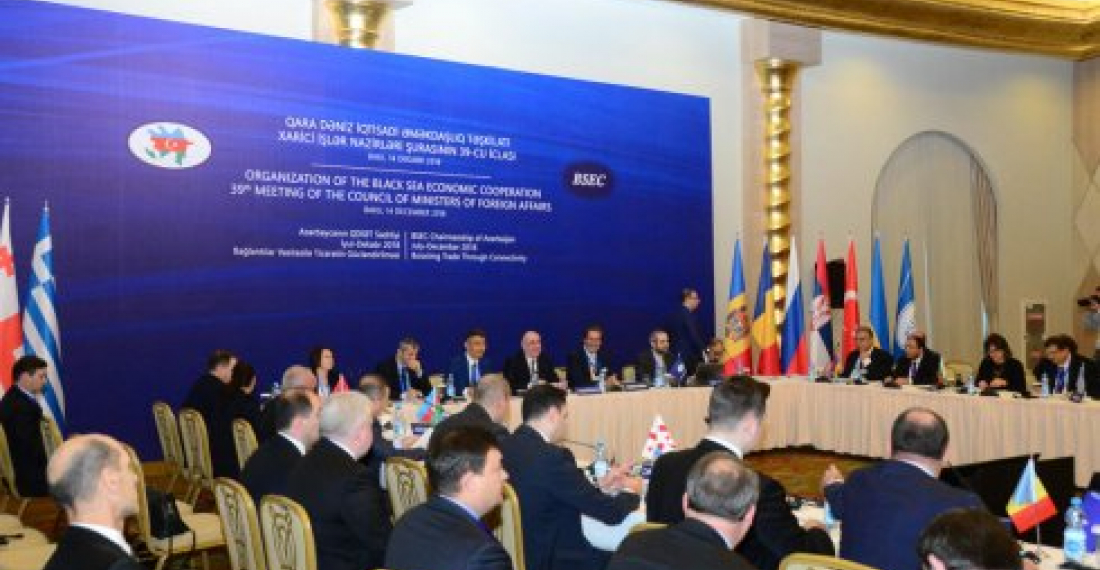Russian Foreign Minister Sergey Lavrov believes that the situation in the Black Sea region has recently deteriorated and appealed for the region to be turned into a zone of peace, stability and prosperity.
"In the quarter-century of its existence, the BSEC developed as a popular regional venue," he said, speaking at a foreign ministerial meeting of the Organization of the Black Sea Economic Cooperation (BSEC). "Its further success will depend on how pragmatically we will be able to build up our cooperation. Unfortunately, the situation in the Black Sea region degraded recently."
"It is important to reverse this trend and work to turn the Black Sea region into a zone of peace, stability and prosperity," Lavrov went on. "I am confident that the organization should not serve as a scene for political struggles, let alone score-setting."
The Russian foreign minister reiterated that the BSEC chiefly deals with economic issues, and the organization's mandate should be respected. "It is the guarantee of the BSEC's capability to support the development of integration ties," Lavrov added.
Delegates attending the conference were however hardly impressed by the words of the Russian minister given recent incidents near the Crimean peninsula which saw Russian naval forces interfering with Ukrainian shipping , resulting in a major incident and increase in tension.
The 39th meeting of the Council of Ministers of Foreign Affairs of the Black Sea Economic Cooperation Organization (BSEC) member countries is currently taking place in Baku since Azerbaijan currently has the chairmanship of the organisation
At the opening of the meeting, Azerbaijani Foreign Minister Elmar Mamedyarov, thanked participants for accepting the invitation for the meeting in Azerbaijan. Among those attending the BSEC meeting in Baku is a senior diplomat from Armenia.
Minister Mammadyarov said the main topics of discussion of the meeting, which is held under the motto "Expanding trade through connectivity", will be increasing the efficiency of the organization's work, facilitating trade, and promoting cooperation in such areas as energy, transit, ICT, tourism, agriculture and other important topics.
source: commonspace.eu with agencies
photo: The opening session of the 39th meeting of the Council of Ministers of Foreign Affairs of the Black Sea Economic Cooperation Organization (BSEC) in Baku on 14 December 2018.






